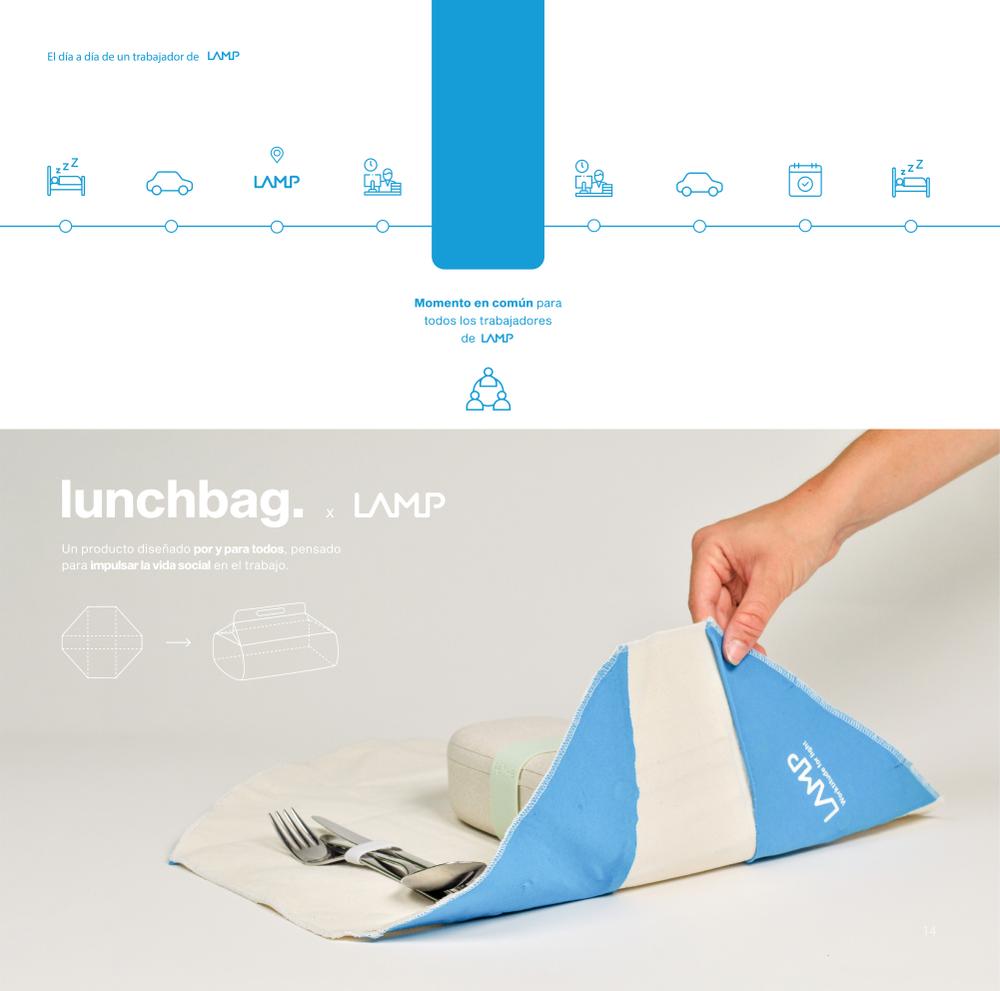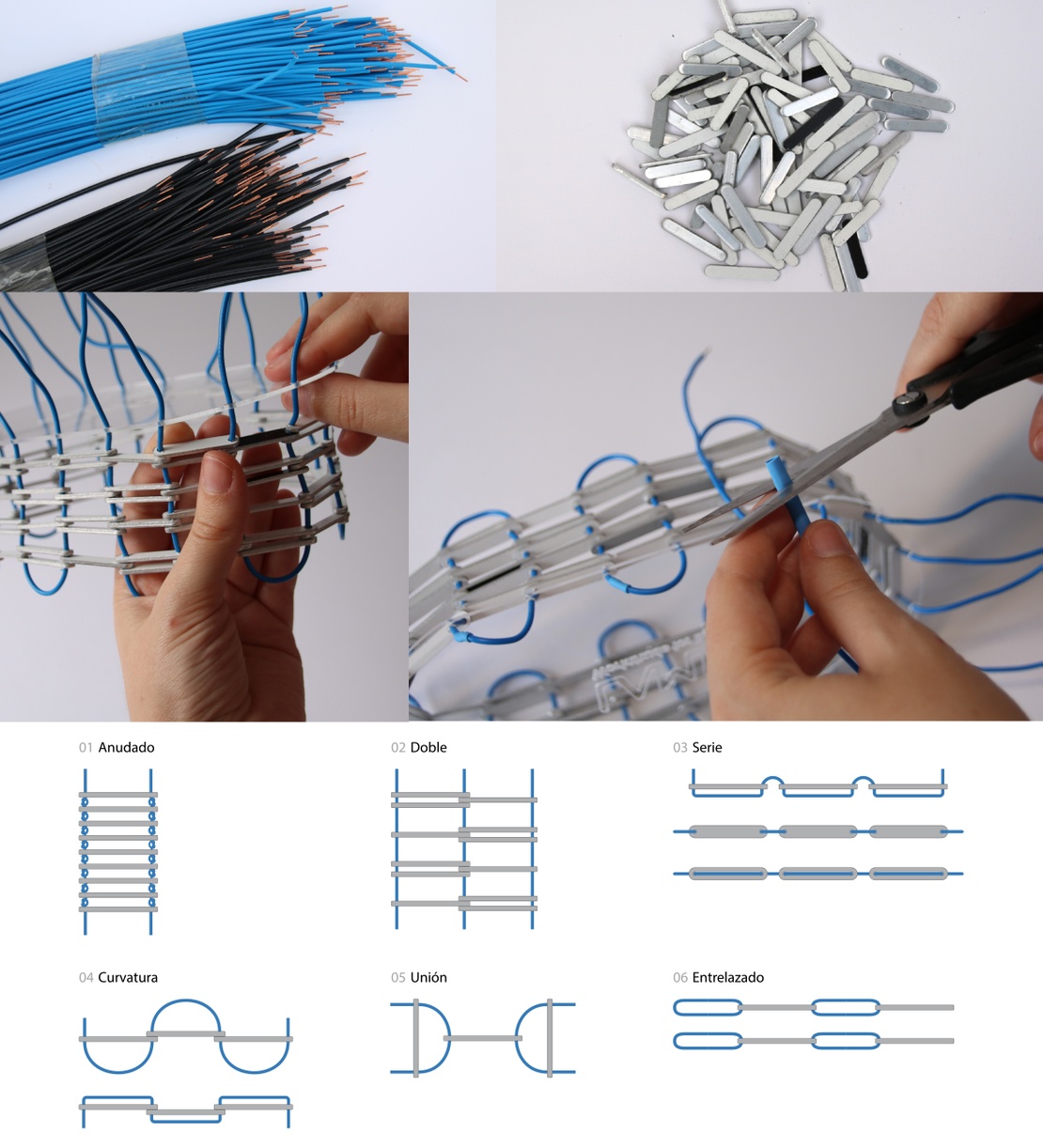Lamp and Elisava: Design and Circularity. Enhancing the value of waste material
Jul 19 2022
During the previous academic year, Lamp and Elisava University School of Design and Engineering in Barcelona worked together to organise a workshop focusing on sustainability as part of the school's Master's Degree course in Product Design and Development.
In this workshop, which brought together the concepts of design and circularity, the students' objective was to develop projects that would transform the waste material generated at Lamp into a completely new product, feeding it back into the industrial supply chain and enhancing the value of material that would otherwise end up as waste.
In this workshop, the students had the opportunity to develop projects that transcended the academic environment and that were set in a real working environment, with the same conditions, requirements, and challenges that an industrial design professional would face today.
Four circular projects
The workshop concluded with a presentation of four projects that addressed the stated challenge: to include specific solutions for the recovery and revaluation of waste material, from a variety of different approaches:
-The first project developed a highly experimental work, taking Andreu Carulla's work as inspiration and a starting point, submitting a proposal based on research into a variety of cardboard recycling processes, which included several prototype proposals;
-The second project followed the principle of "Designing a product that can be used by all workers on an equal basis, and one which forms part of a dynamic that promotes a better quality of social life at work", and designed and manufactured a prototype of a bag for carrying food, made from recycled fabrics and cables;
- "Manual of Solutions for Non-Designed Objects" offers a reflection on how the combination of a variety of simple materials can be transformed into a conceptually complex sculptural object in order to "bring the brand image closer to the people, with the aim of creating a link between the company and the user".
-The last team presented their research into cables and sheets and how to integrate them to create new products, demonstrating the potential of this research into how to reintroduce these waste materials back into the industry.
The experience has proved to be very satisfactory and beneficial for all parties concerned. For the Master's degree tutors and students, this workshop has given them the opportunity to work with industrial design projects that provide solutions to the real problems and challenges faced by a lighting company, namely sustainability.
For Lamp, this initiative, in addition to providing a specific and practical solution to promote circularity in the company, is fully aligned with our strategic focus, #WorktitudeForLife, which is a three-pronged commitment to sustainability: environmental, corporate, and social.
University-Business Collaboration
Xavi Riudor, director of the Master's Degree in Product Design and Development at Elisava, and Jordi Arasanz, technical director of Lamp, were the intermediaries who made the contact and collaboration between the university school and our company a reality.
One of the objectives of the Master's degree is to provide the professional skills that will enable students to enter the labour market, such as teamwork, and the ability to communicate and present a project, carry out research, and solve real, practical problems through industrial design.
The course is based on the idea that design, over and above its aesthetic value, is also a tool for offering solutions and improving processes. Equally important, however, is the ability to communicate these projects, and entrepreneurship and leadership are fostered and encouraged. Elisava believes that the best way to acquire these professional skills is through professional contact with a company.
Design and Circularity Workshop to recover and enhance the value to waste materials
Xavi Fernández and Pol Ventura - both of whom are product designers who combine their work in the private sector with teaching - were in charge of developing the workshop content and tutoring the projects.
The idea for the workshop arose from the desire to "do something with your hands", as a response to today's education which is very centred on the digital environment. The idea was to get out of our comfort zones and work with physical materials and create a product that would be the result of reusing waste materials. It was also important for these materials to be ones often rejected, so that they could be included again in the production process and thus promote circularity with the aim of having an ongoing impact and promoting sustainability.
The workshop was included in the Master's degree as an option, and its main appeal was to be able to go into a workplace and work with the idea of circularity, not as a theoretical concept, but as a practical and feasible business approach.
Results and next steps to take
The project chosen by Lamp to be carried out by the students themselves over the coming months, in collaboration with the company's in-house team, was the proposal developed by Lucía Solinís, Antonio Piera and María Songel, which seeks to generate a portfolio of industrial solutions, in the form of a semi-elaborated component made from post-industrial waste, which can then be reincorporated into the industrial process, and ultimately form part of a final product.
Lamp opted for this proposal as it felt that it had the greatest potential to generate a positive impact on industry circularity and sustainability. The intention is that, in the future, when the final catalogue of the different products that can be manufactured is made available, a social entity will be approached who would then be responsible for their manufacture.
In order to implement the selected project, the first step will be to continue researching possibilities, with the aim of establishing a catalogue of semi-finished products made from waste materials. Lamp will collaborate with the students in charge of the project, who will be able to continue working on it at the company itself.
In a subsequent phase, we envisage being able to offer these solutions to other industries in order to get post-industrial waste back into circulation, and, eventually, to begin manufacturing other end products, with the firm intention of engaging other companies that work for social inclusion on a local level.
In this way, this university-business collaboration will be consolidated, creating a greater social impact, and enabling Lamp, in conjunction with Elisava, to continue developing solutions for a more sustainable and inclusive industry.






